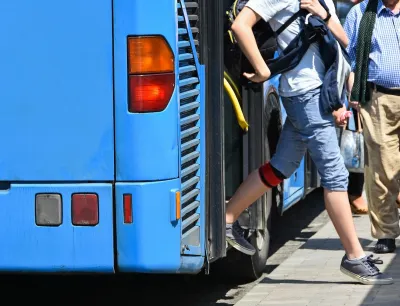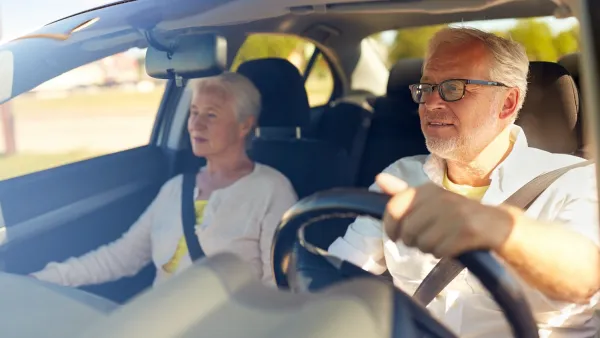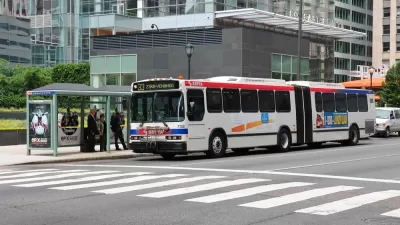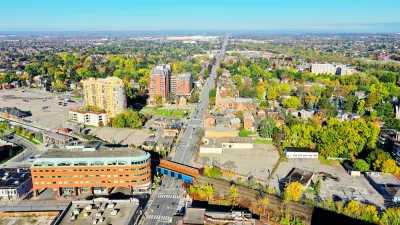Sidewalks are an intuitive, low-cost, and easily accessible mobility tool. Can local buses function in the same way?

In a piece for Fast Company, Andy Boenau argues that city buses should serve residents in the same way that sidewalks do, offering intuitive, easy-to-use mobility.
A well-run bus system is an express sidewalk—a piece of infrastructure that dramatically expands the number of destinations within walking distance.
However, “In most American cities, public transit is treated like a last-resort service, a social program for people who can’t afford cars, something to be endured rather than embraced.” Transit systems are underfunded, so their service becomes “infrequent, inconvenient, hard to use, and often stuck in traffic.”
Boenau lists four key principles that support an effective transit system: frequency, convenience, safety, and reliability. Bus stops should be readily available, with frequent service to places people want to go and safe, comfortable places to wait. “If general purpose car traffic dominates the curb, buses will never scale, and walking—the most ancient, equitable form of transport—remains functionally capped.”
As Boenau notes, “we don’t build sidewalks out of pity. We build them because they’re essential infrastructure like plumbing or electricity.” Local transit systems could be a similarly crucial resource. “The moment we stop treating the bus as a social program and start treating it like an express sidewalk, we unlock a public good that meets people where they are and moves them forward.”
FULL STORY: The local bus should be like a sidewalk with a motor

Maui's Vacation Rental Debate Turns Ugly
Verbal attacks, misinformation campaigns and fistfights plague a high-stakes debate to convert thousands of vacation rentals into long-term housing.

Planetizen Federal Action Tracker
A weekly monitor of how Trump’s orders and actions are impacting planners and planning in America.

San Francisco Suspends Traffic Calming Amidst Record Deaths
Citing “a challenging fiscal landscape,” the city will cease the program on the heels of 42 traffic deaths, including 24 pedestrians.

Defunct Pittsburgh Power Plant to Become Residential Tower
A decommissioned steam heat plant will be redeveloped into almost 100 affordable housing units.

Trump Prompts Restructuring of Transportation Research Board in “Unprecedented Overreach”
The TRB has eliminated more than half of its committees including those focused on climate, equity, and cities.

Amtrak Rolls Out New Orleans to Alabama “Mardi Gras” Train
The new service will operate morning and evening departures between Mobile and New Orleans.
Urban Design for Planners 1: Software Tools
This six-course series explores essential urban design concepts using open source software and equips planners with the tools they need to participate fully in the urban design process.
Planning for Universal Design
Learn the tools for implementing Universal Design in planning regulations.
Heyer Gruel & Associates PA
JM Goldson LLC
Custer County Colorado
City of Camden Redevelopment Agency
City of Astoria
Transportation Research & Education Center (TREC) at Portland State University
Jefferson Parish Government
Camden Redevelopment Agency
City of Claremont





























